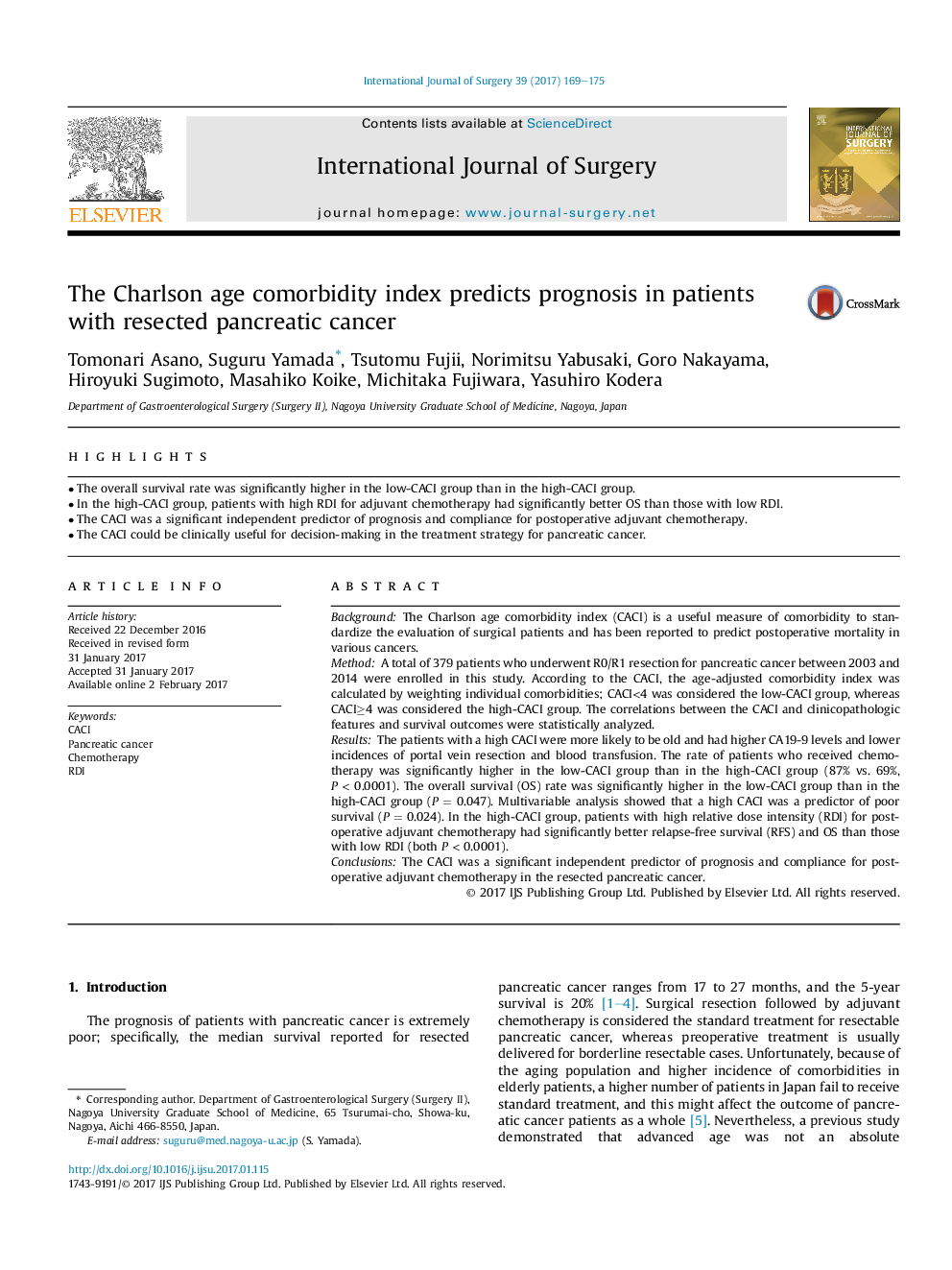| کد مقاله | کد نشریه | سال انتشار | مقاله انگلیسی | نسخه تمام متن |
|---|---|---|---|---|
| 5732107 | 1611940 | 2017 | 7 صفحه PDF | دانلود رایگان |
- The overall survival rate was significantly higher in the low-CACI group than in the high-CACI group.
- In the high-CACI group, patients with high RDI for adjuvant chemotherapy had significantly better OS than those with low RDI.
- The CACI was a significant independent predictor of prognosis and compliance for postoperative adjuvant chemotherapy.
- The CACI could be clinically useful for decision-making in the treatment strategy for pancreatic cancer.
BackgroundThe Charlson age comorbidity index (CACI) is a useful measure of comorbidity to standardize the evaluation of surgical patients and has been reported to predict postoperative mortality in various cancers.MethodA total of 379 patients who underwent R0/R1 resection for pancreatic cancer between 2003 and 2014 were enrolled in this study. According to the CACI, the age-adjusted comorbidity index was calculated by weighting individual comorbidities; CACI<4 was considered the low-CACI group, whereas CACIâ¥4 was considered the high-CACI group. The correlations between the CACI and clinicopathologic features and survival outcomes were statistically analyzed.ResultsThe patients with a high CACI were more likely to be old and had higher CA19-9 levels and lower incidences of portal vein resection and blood transfusion. The rate of patients who received chemotherapy was significantly higher in the low-CACI group than in the high-CACI group (87% vs. 69%, P < 0.0001). The overall survival (OS) rate was significantly higher in the low-CACI group than in the high-CACI group (P = 0.047). Multivariable analysis showed that a high CACI was a predictor of poor survival (P = 0.024). In the high-CACI group, patients with high relative dose intensity (RDI) for postoperative adjuvant chemotherapy had significantly better relapse-free survival (RFS) and OS than those with low RDI (both P < 0.0001).ConclusionsThe CACI was a significant independent predictor of prognosis and compliance for postoperative adjuvant chemotherapy in the resected pancreatic cancer.
Journal: International Journal of Surgery - Volume 39, March 2017, Pages 169-175
